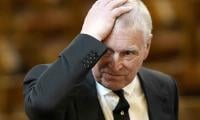Code red
Due to our climate emergency, we are leaving an increasingly hostile climate to our children and grand-children.
Last week, UNICEF reported how one billion children are already at “extremely high risk” from the effects of our rapidly changing climate, such as heatwaves, floods, cyclones, disease, and drought.
Responding to this stark figure, climate activist, Greta Thunberg stated that the world “is still not treating the climate crisis like an emergency. We are still just talking and greenwashing things instead of taking real action.”
It is easy to see why a generation of young activists is still so angry with the elder generation. So much of the climate debate boils down to finance. It is a simple ask: stop funding climate chaos and invest in clean renewable energy.
Organization after organization is now calling for an end to exploration and production of fossil fuels. And that means stopping the finance of new fossil fuel projects.
The world’s energy watchdog, the International Energy Agency (IEA), long seen a laggard on this issue, has now acknowledged that to limit warming to 1.5 degrees Celsius and avoid the worst of the climate crisis, we must cease all new investment in the expansion of oil, gas, and coal supply beyond that already committed now.
The world’s leading scientists, the IPCC, have also recently issued a ‘code red’ for humanity and said that we must stop investing in fossil fuels.
But despite these warnings and continued record floods and wildfires, and now the new report from UNICEF, this is still not happening. Especially with key players in the climate crisis: central banks.
Central banks could play a critical role in catalyzing the rapid shift of financial flows away from oil, fossil gas, and coal, and toward the zero-carbon solutions required to confront the climate crisis. To date, however, this is still not happening.
A new report, published today by Oil Change International and other organisations, entitled ‘Unused Tools: How Central Banks Are Fueling the Climate Crisis’, reveals that twelve of the largest central banks around the globe continue to support climate chaos-causing fossil fuels through policy and direct finance.
Using a ten-point system to gauge how well central banks’ were responding to the climate crisis, the new analysis finds that not one of the twelve major central banks analyzed comes close to alignment with the Paris Agreement on any of the criteria. Not one bank.
Excerpted: ‘The Dirty Dozen Central Banks Are Still Fuelling Climate Chaos as the World Burns’
Commondreams.org
-
 Sarah Pidgeon Explains Key To Portraying Carolyn Bessette Kennedy
Sarah Pidgeon Explains Key To Portraying Carolyn Bessette Kennedy -
 Justin Bieber Rocked The World With Bold Move 15 Years Ago
Justin Bieber Rocked The World With Bold Move 15 Years Ago -
 Sam Levinson Wins Hearts With Huge Donation To Eric Dane GoFundMe
Sam Levinson Wins Hearts With Huge Donation To Eric Dane GoFundMe -
 Kate Middleton Steps Out First Time Since Andrew Mountbatten-Windsor's Arrest
Kate Middleton Steps Out First Time Since Andrew Mountbatten-Windsor's Arrest -
 Inside Nicole 'Snooki' Polizzi's 'private' Marriage With Husband Jionni LaValle Amid Health Scare
Inside Nicole 'Snooki' Polizzi's 'private' Marriage With Husband Jionni LaValle Amid Health Scare -
 Germany’s Ruling Coalition Backs Social Media Ban For Children Under 14
Germany’s Ruling Coalition Backs Social Media Ban For Children Under 14 -
 Meghan Markle Shuts Down Harry’s Hopes Of Reconnecting With ‘disgraced’ Uncle
Meghan Markle Shuts Down Harry’s Hopes Of Reconnecting With ‘disgraced’ Uncle -
 Liza Minnelli Alleges She Was Ordered To Use Wheelchair At 2022 Academy Awards
Liza Minnelli Alleges She Was Ordered To Use Wheelchair At 2022 Academy Awards -
 Quinton Aaron Reveals Why He Does Not Want To Speak To Wife Margarita Ever Again
Quinton Aaron Reveals Why He Does Not Want To Speak To Wife Margarita Ever Again -
 Prince William And Kate's Photos With Andrew Used In New Campaign Against Royals
Prince William And Kate's Photos With Andrew Used In New Campaign Against Royals -
 Touching Eric Dane Moment With Daughter Emerges After Viral Final Words
Touching Eric Dane Moment With Daughter Emerges After Viral Final Words -
 Kate Middleton Quietly Backs Princess Beatrice, Eugenie As Andrew Scandal Intensifies
Kate Middleton Quietly Backs Princess Beatrice, Eugenie As Andrew Scandal Intensifies -
 Michael B. Jordan Shares His Thoughts On Growing Trend Of Live-action Anime Adaptations
Michael B. Jordan Shares His Thoughts On Growing Trend Of Live-action Anime Adaptations -
 Why Mikaela Shiffrin Celebrated Olympic Gold With Taylor Swift Song?
Why Mikaela Shiffrin Celebrated Olympic Gold With Taylor Swift Song? -
 Andrew Mountbatten-Windsor Was Mentioned In Epstein Email Sent Before His Death
Andrew Mountbatten-Windsor Was Mentioned In Epstein Email Sent Before His Death -
 'Dump Eugenie And Beatrice': Andrew's Daughters Face Backlash After His Arrest
'Dump Eugenie And Beatrice': Andrew's Daughters Face Backlash After His Arrest



